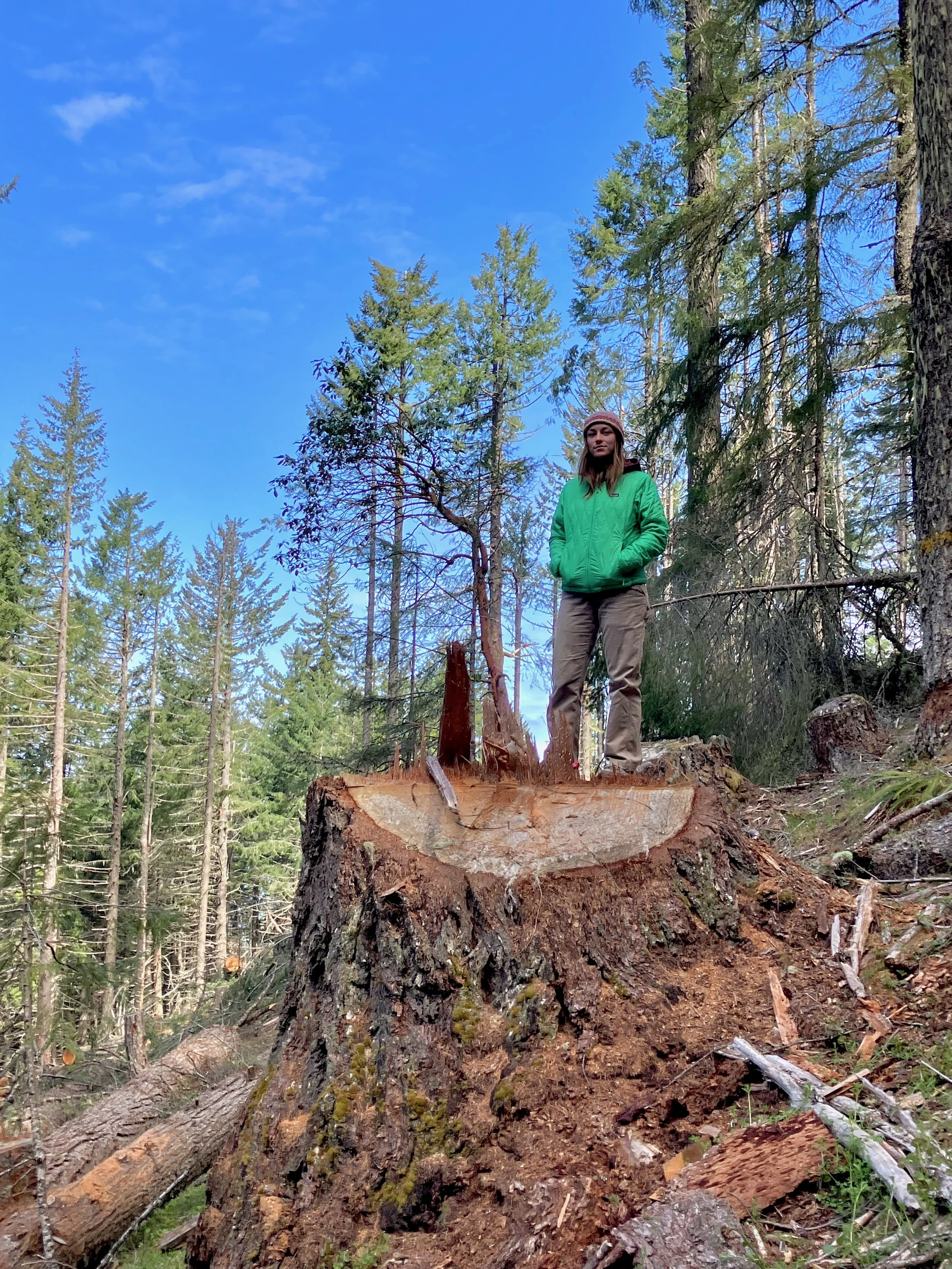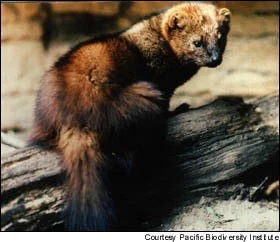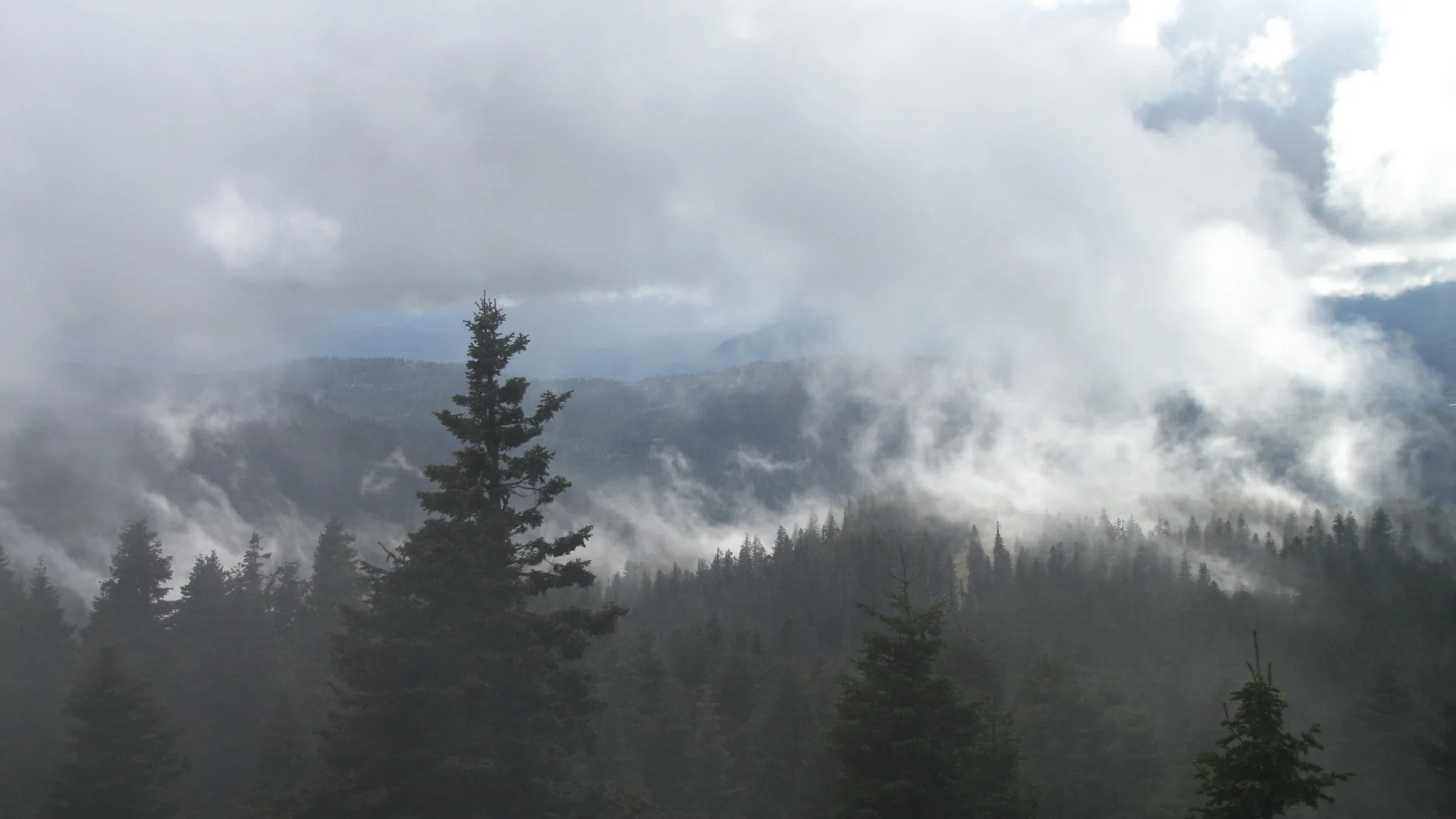Despite a 2017 ruling by the Obama Administration to put a 20-year moratorium on mining in the headwaters of the North Fork Smith River and Illinois River, a new mining company has emerged with plans to mine for nickel in the Baldface Creek watershed. Read more about KS Wild’s work protecting this region from mining here.
Read MoreLast week, I ventured into the field with George, our Conservation Director, to groundtruth a Medford District Bureau of Land Management (BLM) timber sale called Mill Rat within the Poor Windy project just north of Grants Pass, Oregon. What we found was heartbreaking. Click to read the full field report.
Read MoreFollowing years of public concern and successful op eds and appeals, the Bear Grub timber sale is canceled (again)! Read more about the decision here.
Read MoreThe Bear Grub timber sale is back, and rather than working with the public to reduce the impacts of the proposed "group selection" logging on wildlife, watersheds and wildlands, the BLM is once again targeting ancient forests in the "harvest land base" for "group selection. Take action today to let the BLM know you oppose the Bear Grub timber sale!
Read MoreFew experiences are more evocative of the Pacific Northwest than the sight of a salmon leaping a waterfall. People gather to watch as they make their way to ancestral spawning grounds each year at Rainie Falls on the Rogue River or the mouth of Wooley Creek on the Salmon River. Some rivers of the Klamath-Siskiyou are strongholds for wild salmon, including the federally listed Northern California/Southern Oregon Coho Salmon
Read MoreWe are celebrating the recent victory to protect some of our most prized rivers from proposed industrial strip mining for a period of 20 years. We are hopeful that this victory will stand, even in the Trump administration.
Read MoreAfter four local public hearings and thousands of letters to elected officials, support for the Cascade-Siskiyou National Monument has been heard! On Thursday, January 12, 2017, President Obama used his authority under the Antiquities Act to expand the Cascade-Siskiyou National Monument in southern Oregon.
Read MorePart of our work at KS Wild is to track management decisions by the US Fish and Wildlife service to list at-risk species as threatened or endangered under the Endangered Species Act. In continuing a 22-year battle to protect their declining populations, we filed lawsuit with three of our conservation allies to list the Pacific fisher. Other species we continue to fight for include the Siskiyou Mountain Salamander, the Wolverine and four species of Lamprey.
Read MoreThe Bureau of Land Management administers the public forests that surround communities in Western Oregon. These are our backyard forests! Places like the Wild Rogue River, the Applegate Valley foothills and rare plant hotspots in the Illinois Valley deserve our best conservation efforts.
Read MoreWestern Oregon’s BLM lands support salmon, steelhead, and wildlife while delivering clean water and recreational values to the public. These forests are source-drinking watersheds for hun-dreds of thousands of Oregonians, they sequester large amounts of carbon, and they provide crucial ecological functions. The natural amenities found on these public lands are highly valued and sought after, from local residents to tourists from around the world.
Read MoreRogue Riverkeeper and our allies have been fighting the proposal for a gas pipeline, power plant, and export terminal through southern Oregon for years. This dangerous and unnecessary project threatens private property owners with eminent domain, will impact dozens of threatened and endangered species, will clear-cut a 95 foot swath for 235 miles, will raise our gas rates here at home, and accelerate climate change.
Read MoreThe Klamath-Siskiyou region is home to the largest expanse of wildlands on the West Coast. Some of these pristine wild areas are protected under the Wilderness Act as Wilderness Areas, but many other wilderness-quality lands are unprotected and face a variety of threats including logging, road-building, over-grazing, and irresponsible off-road vehicle use.
Read MoreThe mountains of the Kalmiopsis emerged from the ocean floor as result of geological uplift (rather than volcanism) and have been subject to folding and faulting ever since. As a result, the unique soils are packed with heavy metals including nickel, iron, chromium, and magnesium that make life hard for most plant life. To survive in this environment plants have had to evolve and adapt to get by in circumstances that would normally kill most flowering species. More than any other wilderness in the region, the Kalmiopsis is the home of oddball survivors.
Read More










